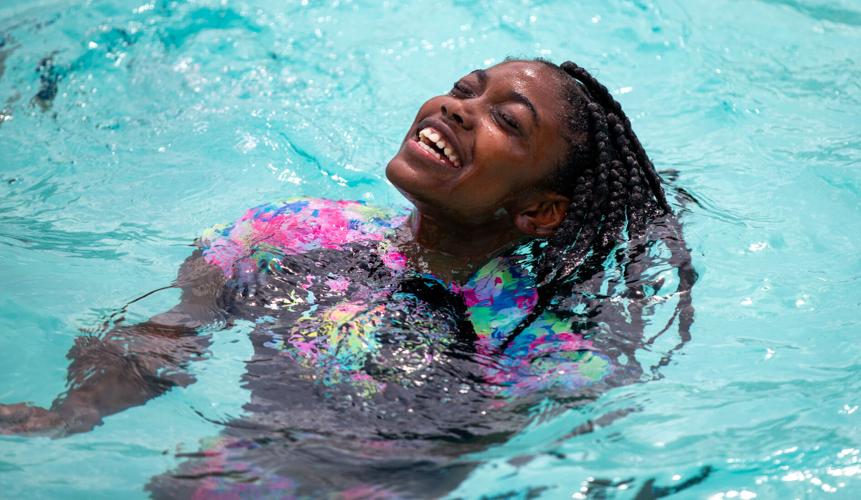A heat advisory was issued Wednesday by the National Weather Service for much of southeast Louisiana, including New Orleans.
The advisory, which lasts from 11 a.m. to 7 p.m. Wednesday, was put in place because heat indices across the area are forecast to range from 105 to 100 degrees. Heat index uses the air temperature and relative humidity to find the "feels-like" temperature.

In New Orleans the actual temperature high is forecast at 95, but the heat index is expected to hit 107, just one degree below the NWS dangerous heat threshold.
In Baton Rouge, the high is 95, but the heat index is forecast to hit 109, which is dangerously hot.
In Slidell, the high is 94 and the heat index will hit 107.

While summer doesn't officially begin until June 21, Louisiana has already gotten off to its usual head start.
Know what to look for
A heat advisory is issued when dangerously high temperatures are expected in the next 12-24 hours. When temperatures reach 103 degrees or the heat index reaches 108 degrees, that is considered dangerous heat.
An excessive heat watch is issued when extremely high temps are possible in the next one to three days. When temps reach 105 degrees or the heat index reaches 113 degrees, it is extremely dangerous heat.
An excessive heat warning is issued when extremely dangerous heat is expected in the next 12-24 hours.
Take proper precautions
If people are outside during dangerously high temps, they can suffer from heat illness. Symptoms of heat exhaustion include:
- Dizziness
- Thirst
- Heavy sweating
- Nausea
- Weakness
To treat heat exhaustion, you should move to a cooler area, loosen any tight clothing and sip water. If symptoms don't improve, then those experiencing heat exhaustion should seek medical attention.
If heat exhaustion isn't treated, it can lead to heat stroke. Those suffering can experience:
- Dizziness
- Confusion
- Falling unconscious
If you're with someone who is experiencing heat stroke, you should call 911. If someone with heat stroke doesn't get treated quickly, they can be permanently disabled or even die from the heat.
Certain groups are more likely to suffer from heat illness than others. The elderly, people with chronic illness or who are pregnant, and children are the most vulnerable. Children and pets should not be left in the car unattended during especially hot days.
Those who have to go outside for work or exercise are advised to limit strenuous activities, take breaks in the shade and stay hydrated.





